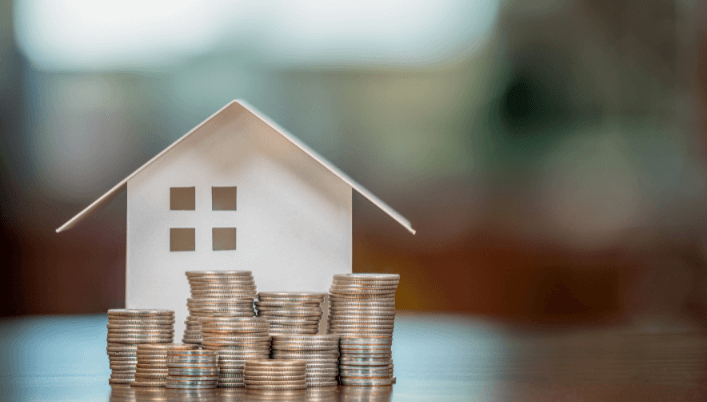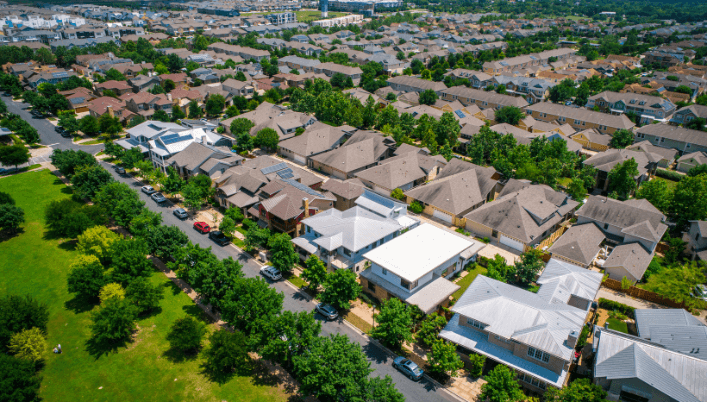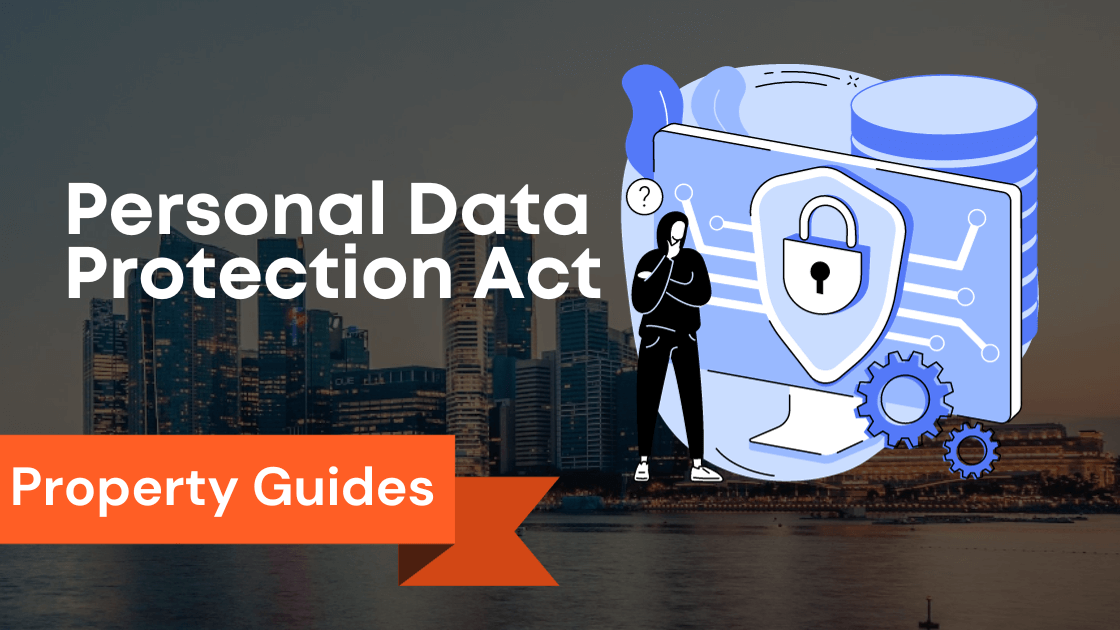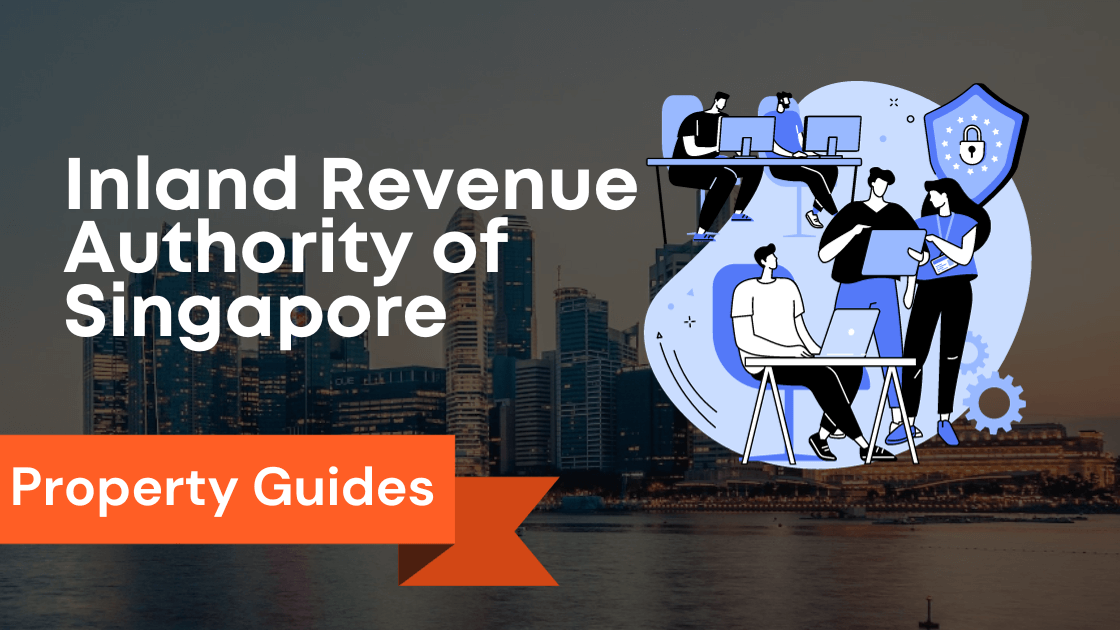
Building Under Construction (BUC) properties are famous for homebuyers and investors in Singapore.
This article will provide a comprehensive guide to understanding BUC properties, including the payment scheme, types of loans available, and important considerations when purchasing a private building under construction.
What is Building Under Construction (BUC)?
A Building Under Construction refers to properties that are still being built and still need to be completed.
Developers typically sell these properties and offer buyers the opportunity to purchase a new home yet to be completed.
Buyers can choose from various property types, including Housing Development Board (HDB) flats, condos, and private properties.
Importance and benefits of investing in BUC properties
Investing in BUC properties can be a smart move for several reasons.
Firstly, it allows buyers to secure a lower price than completed properties.
Additionally, buyers can choose from various payment schemes, such as the Progressive Payment Scheme (PPS), which enables them to make payments in stages based on the construction progress.
Furthermore, investing in BUC properties offers potential capital appreciation in the long run.
As the property market in Singapore continues to grow, the value of BUC properties is expected to increase, providing buyers with a profitable investment opportunity.
Overview of BUC properties in Singapore
In Singapore, there are numerous BUC properties available across various developments.
Buyers can choose from different properties, ranging from HDB flats to high-end condos.
The choice of property will depend on individual preferences and budget.
Buyers must consider important factors such as repayment options, CPF usage, stamp duties, and the Sales and Purchase Agreement (SPA) when purchasing a BUC property.
It is essential to seek professional advice and understand the terms and conditions before committing to the purchase.
For more information on BUC properties and specific queries, potential buyers can contact us for personalized assistance and guidance.
Our team of experts is here to help with your BUC property journey.
Buying a BUC property is a significant decision, and thorough research and understanding are crucial.
Ensure to seek professional advice and note all the essential considerations to make an informed choice.
Key Takeaways
- What is BUC: BUC properties are under-construction properties sold by developers, offering buyers a chance to purchase a new home before completion.
- Benefits of BUC: Buying BUC properties can be cost-effective, with flexible payment schemes and potential long-term appreciation.
- Property Types: BUC properties in Singapore encompass various property types, including HDB flats, condos, and private properties.
- Considerations: Buyers must consider repayment options, CPF usage, stamp duties, and the Sales and Purchase Agreement (SPA).
- BUC Loans: Two main types of BUC loans are available: Bank Loans and Mortgage Loans, each with its pros and cons.
- Factors to Consider: When choosing a BUC loan, factors like interest rates, payment schedules, eligibility criteria, loan quantum, and terms and conditions must be weighed.
- Progressive Payment Scheme: Understanding the progressive payment scheme is crucial for BUC property buyers, as payments are made at different construction stages.
- Payment Milestones: Payment milestones are defined by completion stages, with corresponding percentages of the purchase price.
- Smooth Repayment: Budgeting for payments, reviewing SPA and OTP agreements, and collaborating with financial institutions are essential for smooth repayment.
- Contacting Experts: Seek assistance from professionals when purchasing a BUC property, as careful planning and research are vital.
Types of BUC Loans
Understanding the various types of BUC loans available
When purchasing a private building under construction (BUC) in Singapore, it’s essential to understand the different types of BUC loans available.
These loans are designed specifically for buyers of properties that are still being developed.
Here are the two main types of BUC loans:
- Bank Loan: Banks and financial institutions provide this type of BUC loan. The loan quantum, or the maximum loan amount, is typically based on a percentage of the property’s purchase price or market value. The payment schedule is usually structured according to the progressive payment scheme, where payments are made at different stages of the construction process.
- Mortgage: A mortgage BUC loan is offered by the property developer. In this case, the developer acts as the lender. The loan quantum and payment schedule may differ from a bank loan’s, so it’s important to carefully review the terms and conditions before making a decision.
Pros and cons of each type of BUC loan
Both bank loans and mortgage loans have their advantages and disadvantages.
Here are a few things to consider:
Bank Loan:
- Pros: Generally offers competitive interest rates and flexible payment schedules.
- Cons: Requires a higher down payment and may have stricter eligibility criteria.
Mortgage:
- Pros: Can be more flexible regarding loan quantum and payment schedule. May offer incentives such as discounts or lower interest rates.
- Cons: They may have higher interest rates compared to bank loans.
Factors to consider when choosing a BUC loan
When choosing a BUC loan, consider the following factors:
- Interest rates: Compare the interest rates offered by different lenders to find the most competitive option.
- Payment schedule: Evaluate the program and ensure it aligns with your financial capabilities.
- Eligibility criteria: Check the eligibility requirements for each loan type to determine if you meet the necessary measures.
- Loan quantum: Consider the money you need and choose a loan with the required funds.
- Terms and conditions: Review the terms and conditions of each loan option carefully before making a decision.
By understanding the different types of BUC loans available and considering the pros and cons of each, you can make an informed decision when purchasing a private building under construction in Singapore.
For more information or assistance, feel free to contact us.
Progressive Payment Scheme

Are you interested in purchasing a private building under construction (BUC) in Singapore?
If so, understanding the progressive payment scheme is essential.
This payment scheme is commonly used for BUC properties and allows buyers to make payments in stages as the construction progresses.
Here’s a guide on how it works and how you can ensure smooth repayment during the construction phase.
How the progressive payment scheme works
Under the progressive payment scheme, the loan commences at the first stage of the construction.
The amount disbursed is based on the percentage completion of the building.
As the construction progresses, subsequent payments are made at different locations until the property is completed.
Breakdown of payment milestones and percentages
The progressive payment schedule is typically divided into different milestones, each assigned a percentage of the purchase price.
These milestones correspond to specific stages of construction, such as the completion of the foundation, structural works, and architectural works.
The exact breakdown and percentages may vary, but here’s an example:
- Foundation completion: 10% of the purchase price
- Structural works completion: 20%
- Architectural works completion: 30%
- Completion of electrical and plumbing works: 20%
- Completion of doors, windows, and roofing: 10%
- Completion: 10%
Ensuring smooth repayment during the construction phase
To ensure smooth repayment during the construction phase, budgeting for these progressive payments is essential.
Make sure you have the necessary funds available at each payment milestone.
Working closely with your bank or financial institution can help you stay on track with the payment schedule.
Additionally, it’s crucial to thoroughly review the sales and purchase agreement (SPA) and the Option to Purchase (OTP) before signing.
These documents outline the terms and conditions, payment schedule, and any penalties for late payments or changes to the agreed-upon terms.
If you have any questions or need assistance with the progressive payment scheme or purchasing a BUC property in Singapore, contact a professional specializing in mortgage loans.
They can guide you through the process and provide the necessary information and support.
Remember, buying a BUC property requires careful planning and consideration.
By understanding the progressive payment scheme and working with the right professionals, you can have a smoother purchasing experience.
Purchasing a Private Building Under Construction

Are you considering purchasing a private property in Singapore still under construction?
You may wonder about the process, payment schemes, and legal agreements in buying a Building Under Construction (BUC) property.
This article provides a step-by-step guide and essential considerations when purchasing a BUC property in Singapore.
Step-by-step guide to buying a BUC property
To assist you in navigating the purchasing process, here is a step-by-step guide:
- Find a suitable BUC property: Research and identify the private building under construction that best suits your needs and preferences.
- Issue the Option to Purchase (OTP): Upon selecting the property, the developer will issue an OTP, which grants you the exclusive right to buy the property within a specified period.
- Pay the booking fee: After receiving the OTP, you must pay a booking fee equivalent to a percentage of the purchase price.
- Engage a solicitor: Engage a solicitor to handle the legal aspects of the transaction, including the Sales and Purchase Agreement (S&P) and other relevant documents.
- Arrange financing: Determine the type of BUC loan you require and work with a mortgage specialist to secure the necessary funding.
- Pay progressive payments: BUC properties typically follow a Progressive Payment Scheme (PPS), where prices are made in stages based on the project’s completion milestones.
- Legal completion and handover: Upon completion of the private building, you will proceed with the legal completion and handover process, including the final payment.
Key terms and documents including Option to Purchase (OTP) and Sales and Purchase Agreement (S&P)
When purchasing a BUC property, two key terms and documents include the Option to Purchase (OTP) and the Sales and Purchase Agreement (S&P).
The OTP is a legal document that allows you to secure the property for a specified period while you conduct due diligence and arrange financing.
Once the OTP is exercised and the S&P is signed, it becomes a legally binding agreement between the buyer and the developer.
Important considerations when purchasing a BUC property
Here are some important considerations to keep in mind when purchasing a BUC property:
- Timeline and completion: Understand the project’s estimated completion date and ensure it aligns with your expectations.
- Reputation and track record of the developer: Research the developer’s reputation and track history to ensure their projects’ reliability and quality.
- Payment scheme and financing options: Familiarize yourself with the progressive payment scheme and explore different financing options to determine the most suitable arrangement for your financial situation.
- Verify project certifications and approvals: Ensure the project has obtained the relevant authorities’ necessary certificates and permissions.
Purchasing a BUC property can be an exciting and rewarding experience.
By following the step-by-step guide and considering the key points mentioned, you can confidently make an informed decision and navigate the process.
Payment Scheme for Private BUC Properties

Building Under Construction (BUC) properties are popular for many individuals looking to purchase a private building in Singapore.
These properties offer the opportunity to customize your living space and be part of the construction process.
However, it’s essential to understand the payment scheme associated with buying a BUC property to ensure a smooth and hassle-free experience.
Overview of the payment scheme for private BUC properties
The payment scheme for private BUC properties typically follows a progressive disbursement schedule.
Here’s a breakdown of how it works:
- Loan commences at the first stage: When purchasing a BUC property, the loan from the bank or financial institution usually starts at the initial phase of construction. You may need to make payments even before the property is completed.
- Schedule of payment: The payment schedule for BUC properties is usually divided into several stages, each representing a specific milestone in the construction process. The exact number of locations and payment amounts may vary depending on the developer and project.
- Progressive disbursement schedule: The bank or financial institution disburses the loan amount progressively based on the completion of each stage. This means you will only need to make payments for the completed steps, reducing the burden of paying the total amount upfront.
Understanding the repayment structure and schedule
It’s essential to familiarize yourself with your BUC property’s repayment structure and schedule.
Here are some key points to consider:
- Sales and Purchase Agreement (SPA): The SPA outlines the terms and conditions of your purchase, including the payment schedule. Make sure to review this document thoroughly and seek legal advice if needed.
- Options to Purchase (OTP): Before signing the SPA, you must typically exercise the OTP by paying. This payment is usually a percentage of the purchase price and is a commitment to buy the property.
- Types of BUC loans: Different types of loans are available for BUC properties, such as the BUC loan and the mortgage loan. It’s essential to understand the differences between these options and choose the one that best suits your needs.
If you have any questions about the payment scheme for private BUC properties or need assistance with your purchase, please get in touch with us.
Our team of experts is here to help you navigate the process and make informed decisions.
Remember to take note of these factors when purchasing a BUC property to ensure a smooth transaction and enjoy your new home once it’s completed.
Contact Us for BUC Loans

Are you planning to purchase a private building under construction (BUC) in Singapore?
Whether it’s an HDB or condo, navigating the process of buying a BUC property can be overwhelming.
One crucial aspect to consider is the payment scheme, as BUC properties are typically purchased through a progressive payment scheme (PPS).
But don’t worry; BUC loan options are available to help you finance your purchase.
How to get in touch with our BUC loan experts
If you have questions or need assistance with BUC loans, our loan specialists are here to help.
You can easily reach out to us through the following methods:
- Contact us: You can call us during business hours or email us with your inquiries. We will get back to you promptly with the information you need.
- Send us a message: If you prefer to send us a message online, you can fill out the contact form on our website. Provide us with your contact details and any specific questions or concerns you may have.
Requesting a loan consultation and assessment
Once you contact our loan specialists, you can request a loan consultation and assessment.
During this process, our experts will evaluate your financial situation and guide you through the options available for BUC loans.
They will help you understand the repayment terms, interest rates, and other essential details.
Buying a BUC property requires a sales and purchase agreement (OTP) and careful consideration of the payment scheme.
Our loan specialists will ensure you are well-informed and provide a step-by-step guide to help you make informed decisions.
Remember, BUC properties are a unique investment opportunity, and it’s crucial to have the proper financial support.
Contact our loan experts today and let us assist you in securing a BUC loan that suits your needs.
Completed Properties vs BUC Properties

Are you in the market for a new property in Singapore?
If so, you may have come across the terms “Completed Properties” and “Building Under Construction” (BUC) properties.
Understanding the differences between these two options can help you make an informed decision.
Pros and cons of buying completed properties versus BUC properties
Completed properties refer to buildings that have been constructed and are ready for occupancy.
On the other hand, BUC properties are still under construction and will take some time to be completed.
Here are the advantages and disadvantages of each option:
Advantages of buying completed properties:
- Immediate occupancy: When you purchase a completed property, you can move in immediately without waiting for construction to finish.
- Known quality and design: Before purchasing, you can physically inspect the property and assess its quality, design, and finishes.
- Amenities are available: Completed properties often have existing amenities like swimming pools, gyms, and parks that you can start using immediately.
Advantages of buying BUC properties:
- Lower upfront costs: BUC properties are usually priced lower than completed properties, making them a more affordable option.
- Potential capital appreciation: As the construction progresses and the property nears completion, its value may increase, allowing you to profit when you sell.
- Customization options: With BUC properties, you can customize specific design or layout aspects to suit your preferences.
Factors to consider when deciding between the two options
When deciding between completed properties and BUC properties, consider the following factors:
- Resale value: Completed properties generally have a higher resale value than BUC properties due to their immediate availability and existing amenities.
- Neighborhood: Consider the location and surrounding amenities when choosing between the two options. BUC properties may be in up-and-coming areas with potential growth and development.
- Payment scheme: Understand the payment scheme for BUC properties, such as the progressive payment scheme or BUC loan, to ensure it aligns with your financial capabilities.
- Mortgage and loan options: Different types of loans are available for purchasing completed and BUC properties. Research and compare the options to find the best fit for your needs.
Whether you choose a completed property or a BUC property, it’s essential to thoroughly research, read, and understand the sales and purchase agreement and seek professional advice when necessary.
For more information or assistance, feel free to contact us.
We are here to help you find the perfect property to fit your needs.
Things to Take Note When Buying a BUC (Building Under Construction) in Singapore

Common pitfalls and mistakes to avoid when purchasing a BUC property
When purchasing a BUC property in Singapore, there are several common pitfalls and mistakes that buyers should avoid to ensure a smooth transaction and a satisfactory outcome:
- Do thorough research: Before committing to a BUC property, research the reputation and track record of the developer. Look into their past projects, financial stability, and adherence to timelines.
- Understand the payment scheme: BUC properties usually follow a progressive payment scheme (PPS), where payments are made at different stages of construction. Please familiarize yourself with the payment terms and ensure it aligns with your financial capabilities.
- Consider financing options: Explore different types of BUC loans and understand their repayment terms. Consult with mortgage experts to determine the best financing option for your situation.
- Review the Sales and Purchase Agreement (SPA): Carefully go through the SPA to understand your rights and obligations as a buyer. Seek legal advice if necessary to ensure clarity and protection.
- Take note of completion dates: BUC properties have varying completion dates. Consider the timeline and ensure it aligns with your needs, whether you purchase for investment or residential purposes.
Important considerations for a smooth and successful transaction
To facilitate a smooth transaction and ensure a successful outcome when purchasing a BUC property, here are some important considerations:
- Amenities available: Research the amenities and facilities surrounding the BUC property. Consider factors such as accessibility to public transportation, schools, healthcare facilities, and recreational areas.
- Legal fees: Budget for legal fees associated with purchasing a BUC property. Consult with a lawyer to understand the costs involved.
- Resale value: Evaluate the potential resale value of the BUC property. Consider factors such as location, demand, and future developments.
- Neighborhood: Visit the area where the BUC property is located to get a feel for the surroundings and the community. Consider your lifestyle preferences and whether the site aligns with them.
Remember, purchasing a BUC property requires careful thought and consideration.
If you have any questions or need assistance, contact us, and our team of experts will be happy to guide you through the process.
Conclusion
Buying a property still under construction can be an exciting and rewarding experience.
While it may have unique challenges and considerations, the benefits can make it worth the wait.
From per-square-foot discounts to the opportunity to customize your home according to your specific needs, there are several advantages to buying a BUC property in Singapore.
One crucial aspect to remember when purchasing a BUC property is the financing.
It is essential to understand the various loan options available in Singapore, such as the government’s recent decision to cancel interest-only loans.
Buyers should carefully consider their financial capabilities and choose a loan option that suits their needs and budget.
The conveyancing process for BUC properties also has its own set of procedures.
It is important to note that the conveyancing process commences at the first disbursement, and the disbursed ratio is the percentage of the loan amount released to the developer.
Buyers should ensure they are familiar with the terms and conditions of the conveyancing process before proceeding with their purchase.
Furthermore, buyers should know the lock-in period and exercise caution when considering early bird discounts or promotions.
It is essential to thoroughly understand the terms and conditions and assess whether the benefits outweigh the potential drawbacks.
During the defects liability period, which typically lasts for eight weeks, buyers should conduct a thorough inspection of the property and promptly report any defects to the developer.
This period allows for rectification and ensures the parcel is handed over optimally.
Lastly, it is advisable to stay updated on the latest market trends and consult with professionals in the industry.
Engaging the services of a reliable real estate agent or lawyer can provide valuable guidance and ensure a smooth buying process.
In conclusion, while there are considerations and complexities involved in purchasing a property still under construction, it can be rewarding.
By understanding the loan options, conveyancing process, and other relevant factors, buyers can make informed decisions and enjoy the benefits of owning a new private property in Singapore.
With careful planning and thorough research, buying a BUC property can be a fulfilling experience for homeowners.
Frequently Asked Questions
What is the process for buying a building under construction?
Buying a building under construction involves several steps.
First, you must obtain a bank or financial institution home loan.
Next, you will enter into a purchase agreement with the developer, which outlines the terms and conditions of the purchase.
Once the building is completed, you will receive the Temporary Occupation Permit (TOP) and can proceed with the legal process of transferring ownership.
What is the Temporary Occupation Permit (TOP)?
The Temporary Occupation Permit (TOP) is a certificate issued by Singapore’s Building and Construction Authority (BCA).
It signifies that the building is completed and ready for occupation, subject to certain conditions.
Once the TOP is issued, the developer will hand over the property to the buyer.
How do I obtain a home loan for a building under construction?
To obtain a home loan for a building under construction, you must approach a bank or financial institution.
They will assess your financial eligibility and offer you a loan based on your income, credit history, and the property’s value.
It is advisable to compare loan offers from different lenders to find the best terms and interest rates.
What is the Purchase Agreement?
The Purchase Agreement is a legally binding contract between the buyer and the developer.
It outlines the terms and conditions of the purchase, including the purchase price, payment schedule, and any additional clauses or provisions.
Reviewing the Purchase Agreement carefully and seeking legal advice before signing it is essential.
What is the Additional Buyer's Stamp Duty (ABSD)?
The Additional Buyer’s Stamp Duty (ABSD) is a tax imposed by the Singapore government on buyers purchasing residential properties.
It applies to both Singapore citizens and foreigners.
The ABSD rates vary depending on the buyer’s residency status and the number of properties they own in Singapore.
Can I defer my loan repayments till a later date?
Unlike a loan for a completed property, loans for buildings under construction typically require monthly installments right from the start.
This is because the loan is disbursed at each stage of the property construction, and the bank expects regular repayments as per the loan agreement.
What happens if I cannot continue with the purchase of a building under construction?
If you cannot continue purchasing a building under construction, there may be consequences depending on the terms stated in the purchase agreement.
Sometimes, you may lose the deposit or forfeit a certain percentage of the purchase price.
It is crucial to consider your financial situation and commitment carefully before entering into a purchase agreement.
Can I buy a condo unit that is still under construction?
It is possible to buy a condo unit that is still under construction.
Many developers in Singapore offer condos that are in the pre-selling stage, allowing buyers to secure a team before it is completed.
However, conducting thorough research, visiting the showroom, and understanding the developer’s reputation before purchasing is essential.
Can the government cancel interest-only loans for building under construction?
Singapore’s government has taken steps to discourage interest-only loans for buildings under construction, as these fueled property speculation in the past.
Banks must now assess the borrower’s ability to meet the monthly installment repayments based on the loan’s principal amount instead of just the interest.
This ensures that buyers are financially responsible and better prepared to afford their property purchase.
How does the Progressive Payment Scheme (PPS) work for buildings under construction?
The Progressive Payment Scheme (PPS) is a standard payment structure for buying buildings under construction.
Under this scheme, the buyer pays the purchase price in installments, which are linked to the completion stages of the building.
The developer will provide a payment schedule, and the buyer must make the payments accordingly.
This ensures that funds are disbursed to the developer based on the actual progress of the construction.












